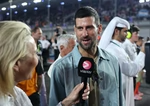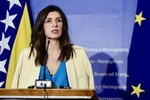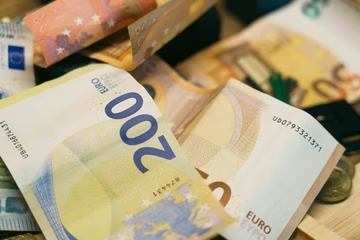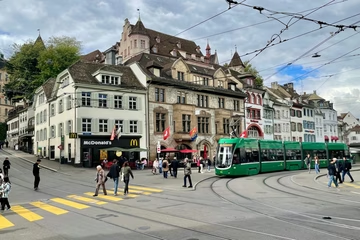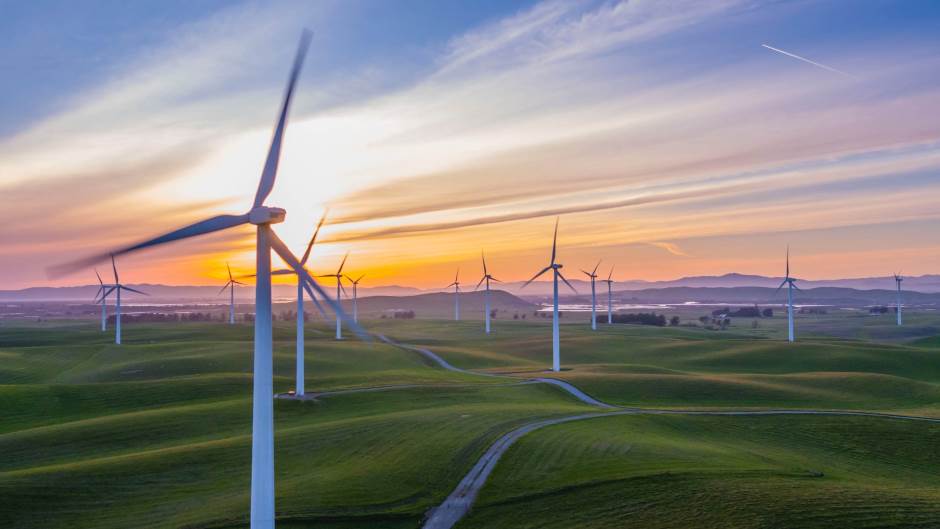
Denmark, Belgium, the Netherlands and Germany have the ambition to build energy islands in the North Sea and increase the production of green electricity tenfold so that wind farms could supply half of the EU with sustainable energy by 2050, Danish Ambassador to Croatia Ole Frijs-Madsen said on Wednesday.
Oglas
The Danish Embassy presented the results of the North Sea summit held in mid-May in Esbjerg, Denmark, at which the four countries signed the Esbjerg Declaration which gives guidelines for building energy islands with the aim of supplying up to two-thirds of the EU's population with electricity produced from wind.
The Danish ambassador was accompanied by the ambassadors of the other three countries that signed the document as well as by President Zoran Milanović's advisor and head of the Northwest Croatia Energy Efficiency Agency, Julije Domac.
The Esbjerg Declaration envisages that the four countries will be able to deliver half of the green energy that will be required by the EU by 2050 from the offshore wind so that the EU could achieve climate neutrality.
Currently, there are 12 GW of offshore wind power stations in all of the EU. The ambition of our four countries is to increase that to 65 GW by 2030 and to 150 GW by 2050, Frijs-Madsen said.
According to Frijs-Madsen, Europe is faced with at least four issues related to the green transition: climate change, the need for strategic autonomy, food and energy price growth, and the need to end dependence on fossil fuels, primarily Russian oil and gas.
Frijs-Madsen recalled that Denmark was the first country in the world to adopt a law on climate and that it aimed to become 70% CO2 neutral by 2030.
Huge savings
Denmark and Belgium have signed an agreement under which Belgium will be connected with the first energy island in the North Sea.
Belgian Ambassador Nicolaas Buyck said that his country is the fifth in the world for the production of green energy via offshore power plants.
We have calculated that by 2030 Belgium could save €50 billion, he said.
Dutch Ambassador Hendrik Jan Voskamp said that 60% of the 17.5 million population in his country live below sea level and that climate change is a reality for the Netherlands.
Croatia just starting
Germany's Ambassador Robert Klinke too said that the fight against climate change and investing in renewables was one of his government's main priorities.
As far as Croatia is concerned, Domac said in terms of renewables Croatia is just "at the beginning."
"It is sad that the beginning is lasting so long (...) we have not had any major projects since 2016, and we need large projects for energy transformation to occur," Domac told Hina.
He considers that Croatia has great potential to use solar energy and is at the very top in Europe in that regard.
"However, in terms of its use, both per capita and in absolute amounts, we are among the last. Solar energy is a huge unexploited potential. As far as feasibility is concerned, that is the first energy source Croatia should exploit," said Domac.
He added that Croatia also needs to increase its use of the wind and build reversible hydropower plants.
Kakvo je tvoje mišljenje o ovome?
Učestvuj u diskusiji ili pročitaj komentare
Oglas
Kakvo je tvoje mišljenje o ovome?
Učestvuj u diskusiji ili pročitaj komentare
Oglas





 Srbija
Srbija
 Hrvatska
Hrvatska
 Slovenija
Slovenija






















